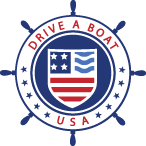In Florida, a Boating Safety Education ID Card is required for all operators of boats with motors of 10 horsepower or more. Operators must carry photo identification while operating their craft.
Florida State Boating Laws & Regulations
Florida boating rules and regulations
Age and operator requirements
Florida law prohibits anyone under 14 years of age from operating a personal watercraft (PWC) at any time even if they possess a Florida Boating Safety Education ID Card.
Additionally, no persons under 18 years of age is permitted to rent or lease a personal watercraft (PWC). PWC owners are also prohibited from knowingly allowing a person under the age of 14 to operate their craft.
For more information, see Personal Watercraft (PWC) Laws in Florida.
Life jacket requirements
Florida law requires every boat to carry a Coast Guard-approved, wearable life jacket (Type I, II, III, or V) for every person on board. As an additional requirement, boats 16 feet or longer must carry a throwable device that is readily accessible and approved by the Coast Guard (e.g. a Type IV personal flotation device).
Children 6 years of age and under
A Type I, II, or III PFD must be worn by any child 6 years and under while aboard any boat under 26 feet in length, while the boat is in operation. Anchored boats, moored boats, boats fastened to shore or aground boats are not considered to be in operation.
Boats over 16 feet in length
There must be at least one wearable life jacket ((Type I, II, III or V) per passenger on board any boat that measures more than 16 feet in length. All boats longer than 16 feet must also carry a throwable device.
Personal watercraft (PWC)
Life jacket requirements for canoes, kayaks and paddle boards are the same as those for boats under 16 feet in length.
PWC and persons being towed
Inflatable PFDs are not permitted on PWCs. PWC operators must wear Coast Guard-approved life jackets at all times.
Towed watersports
Coast Guard-approved life jackets must be worn by anyone being towed behind a boat (inflatable life jackets are not allowed).
Inflatable PFDs
Type V inflatable life jackets must be worn in order to be legal, and the US Coast Guard labels must be followed.
For more information, see Florida Life Jacket Laws & Requirements.
Boat registration requirements
In Florida state, it is mandatory to obtain a Florida Certificate of Registration and validation decal for all vessels except non-motorized vessels less than 16 feet in length, non-motorized canoes, kayaks, racing shells, or rowing sculls, and vessels exclusively operated on private lakes or ponds.
A new or used vessel must be titled and registered within 30 days of purchase. A proof of date of purchase must be aboard the vessel during this 30-day period. The Certificate of Registration must be carried on board and available for inspection at all times. Validation decals are subject to renewal on an annual basis.
In order to register a vessel, you need to go to the local tax collector or license plate agent’s office.
For more information, see Florida Boat Registration Numbers & Stickers Guide
Boating Under the Influence (BUI)
Florida law prohibits the operation of any boat or manipulation of any water skis, sailboards, or similar water sports equipment while under the influence of alcohol or drugs. Boat operators suspected of boating under the influence are required to comply with any sobriety tests and a blood or breath-alcohol test.
Boating Under the Influence (BUI) criteria in Florida state:
- Blood Alcohol Concentration (BAC) level of 0.08 or more (a BAC level of 05-0.08 may also indicate that an operator is under the influence, if other factors are present)
- An operator is under the influence of a substance that impairs their abilities.
- Anyone under the age of 21 with a Blood Alcohol Concentration of 0.02 or higher is prohibited from operating, or being in actual physical control of, any boat.
For more information, see Boating Under the Influence (BUI) Laws and Penalties in Florida.
Personal Watercraft (PWC) requirements
As well as the laws and regulations regarding motorized vessels, Personal Watercraft (PWCs) are also subject to these laws and regulations in Florida state:
- PWCs must be registered with the state of Florida.
- A Coast Guard-approved non-inflatable personal flotation device (PFD) must be worn by anyone operating, riding on, or being towed behind a PWC. PWCs cannot be operated with inflatable flotation devices.
- A lookout other than the operator is required aboard PWCs when towing water skiers or a person in a tube, for example. A wide-angle mirror must also be equipped to the watercraft.
- An engine cutoff switch lanyard (if provided by the manufacturer) must be attached to the operator’s person, clothing, or personal flotation device.
- PWC operation can be classified as reckless operation of a vessel (a first-degree misdemeanor) if the PWC weaves through traffic, jumps the wake of another vessel at unreasonably close distance or swerves at the last minute to avoid a collision.
- It is prohibited to operate a PWC in certain zones on water ways.
For more information, see Personal Watercraft (PWC) Laws in Florida.
Boating fines in Florida state
- Violation of PFD laws – Fines upwards of $80
- Operating a boat with an expired registration – Fines upwards of $250
- Enabling underage operation of personal watercraft (PWC) – Fines upwards of $100 and 90 days jail time
- Boating under the influence (first conviction) –$500 minimum and up to 6 months jail time
- Boating under the influence (second conviction) –$1000 minimum and up to 9 months jail time
- Harassment, hunting, capture or killing of manatees – Fines upwards of $50,000

